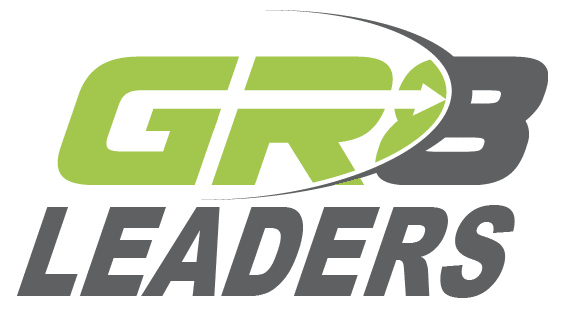If you don't conquer distractions, you prevent focus when needed. Many of your distractions are controlled by you, like your phone, computer, tablet, or TV. The solution is simple for those, but you still need to remove the distraction!
Fear is the likely reason you don’t remove it – fear of being out of touch, uninformed, and unreachable when needed. When that's true, fear makes you a slave of your equipment. Rather than you owning it, it owns you. So, your bad thinking is creating emotions that control you at that point.
With that in mind, consider these four simple methods to help you focus and conquer distractions.

Segment
You can conquer distractions if you go back to school. Not really, but you can treat your time like the school structure. School has classes at specific times, so why not do that with your time where possible? Identify the categories you want to use and plug those into your daily and weekly calendar.
- Priorities (when to do your top 1 to 3 things each day)
- Administrating – when to do the basic ongoing tasks
- Creating – when to tackle the new things you want to do
- Consuming – not about eating, but when you want to research, read, and gather information
- Communicating – when you make your calls, write your emails
Creating needs to be a separate category and is best done at a specific time of day. If you use our THP Process, you know that creating can be done on demand without waiting for inspiration or consequences.
So, conquer distractions when you segment your time.
Simplify
Uncluttered is good. While not always valid for everyone, most people will do best without the distraction of clutter or things around them. Imagine a workspace with only the essential items on the desktop. Your computer desktop is free of distractions; only the essential program(s) are open. Even your walls and floor have little on them to take your mind away from what you need to focus on. And, for many people, music (even headsets, if allowed at work) blocks the surrounding noise to help even more.
Would that be a better environment for you? If so, unclutter 10-15 minutes 1 or 2 times a day. This requires work and diligence. You can use the following sequence if you'd like to try it.
- Clear your desktop
- Turn off computer notifications
- Clear your computer desktop
- Find soothing music (even headphones)
- Clear the floor
- Clear the walls
Don’t try to do all the items in your first 10-15 minute experiment. Do what you can to simplify and unclutter as you prepare to focus on a task or project. Think workable, not perfect, because perfect is its own distraction and time waster.
When you simplify, you help conquer distractions.
Slow Down
This simple technique comes with five helpful and even healthy benefits:
- Focus. When you slow down, you can focus better. It’s hard to concentrate if you’re moving.
- Deeper focus. Rushing produces shallowness because you never have time to dig beneath the surface. Slow down and dive into deeper waters.
- Appreciation. You can appreciate what you have, what you’re doing, and who you’re with when you take the time to slow down and pay attention.
- Enjoyment. When you appreciate things, you enjoy them more. Slowing down allows you to enjoy life to the fullest.
- Less stress. Rushing produces anxiety and higher stress levels. Slowing down is calmer, relaxing, and peaceful.
Slower is Better
Life is often better when you move at a slower, more relaxed pace instead of hurrying, rushing, and trying to cram too much into every experience and day. Think about it. Is...
- ...a book better if you speed-read it or take your time and get lost in it?
- ...a song better if you skim through it or take the time to listen?
- ...food better if you cram it down your throat or savor your bites and appreciate the flavor?
- ...your work better if you’re trying to do ten things at once or pour yourself into one important task?
- ...your time spent with a friend or loved one better if you have a rushed meeting interrupted by emails and text messages, or relax and focus on the person?
Life is better when savored—work is better with focus.
Slow Isn't Possible
You may be saying, “My job won’t allow that,” “I won’t be able to make as much money,” or “I live in the city, which makes it too difficult to go slowly.” Maybe that's correct, but you may also be just becoming a victim. No one makes changes without committing to them and persevering. Why not take responsibility for your life, be more self-governing, take control of your work, and talk with your boss to see if changes are possible?
It’s your life; you have choices whether you think you do or not. And, when you conquer distractions, you probably will enjoy life more.
Single Task
Multi-tasking...
- generally is less efficient due to the need to switch gears for each new task and then switch back again
- is more complicated and thus more prone to stress and errors
- spreads attention over a broader set of information, so gathering all necessary information is less likely
- can train your brain to have a short attention span
One study by Stanford University showed multi-tasking creates ADD-like symptoms in adults.
Charles Dickens once wrote, “He did each single thing as if he did nothing else.”
That is a life of dedication to doing your best in anything you do — whether it’s a work project or making green tea.
And this might help – Multi-projects YES, Multi-task NO.
Projects are often held up waiting for someone or something, so move on to the next when you are at a lull in one. But, don’t try to do multiple tasks at the same time. Some people think they are multi-tasking, but it is just spurts of focus for this, then the next thing. Most often, people do best when they limit their focus to no more than 2 or 3 things.
A proven technique Thomas Edison uses is to decide on the ONE THING you need to complete every day and return to that after each interruption or distraction.
Conquer distractions or, at least, minimize them so you have more time to work on your ONE THING.
